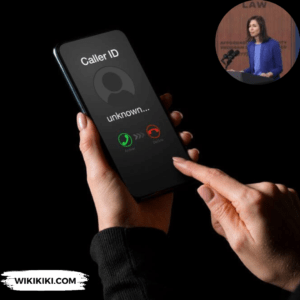The Federal Communications Commission (FCC) has made a statement against the AI-generated robocalls, declaring them illegal in the United States. This decision, reached unanimously by the FCC, shows a step in combating the misuse of technology to defraud consumers.

Also Read: Apple Launches MGIE an AI-based Image Editing Tool
Recently, there has been a troubling increase in robocalls utilizing artificial intelligence (AI) to mimic voices of public figures, celebrities, and even close family members.
These deceptive calls have been used for various nefarious purposes, including spreading misinformation, impersonating individuals, and attempting to influence elections.
One incident occurred in New Hampshire, where AI-generated robocalls impersonated President Joe Biden, urging voters to abstain from participating in the state’s primary election. This attempt at voter suppression made to take action from state authorities.
Under the leadership of FCC Chairwoman Jessica Rosenworcel, the commission took decisive action to address the growing threat by AI-generated robocalls.
The FCC’s ruling, which took effect immediately, prohibits the use of AI voices in calls and empowers state authorities to prosecute offenders.
Chairwoman Rosenworcel addressed the dangers by these fraudulent calls, which have been used to deceive individuals, impersonate celebrities, and disseminate false information.
By classifying AI-generated voices in calls as artificial, the FCC plans to enforce regulations to safeguard consumers from manipulation and fraud.
The FCC’s ruling carries legal implications for entities involved in dissemination of AI-generated calls. Violators of the new regulations face fines, with penalties exceeding $23,000 per call.
Also Read: Meta will Label AI-Generated Images on its Social Media Platforms
Additionally, the ruling grants call recipients the right to take legal action and seek damages for unwanted calls.
State attorneys general are empowered with enhanced tools to combat robocall scams and protect the public from fraudulent activities. The FCC’s decision expands the legal avenues available to law enforcement agencies.
The FCC’s decisive action, challenges remain in addressing the complex issue of AI-generated content and its impact on consumer communication.
Experts caution that technological advancements may lead to more sophisticated AI tools capable of producing convincing voice replicas, a continued threat to consumers’ trust and security.
There is a renewed call for bipartisan cooperation and legislative action to address the implications of AI-generated content, particularly in political campaigns.
Congress must prioritize the development of regulations to mitigate the risks by deceptive practices and safeguard the integrity of democratic processes.
Consumer advocacy groups, lawmakers, and industry stakeholders must work together to foster transparency, accountability, and ethical use of AI technologies.
Also Read: Mark Zuckerberg Apologises to Families at US Senate Hearing





















